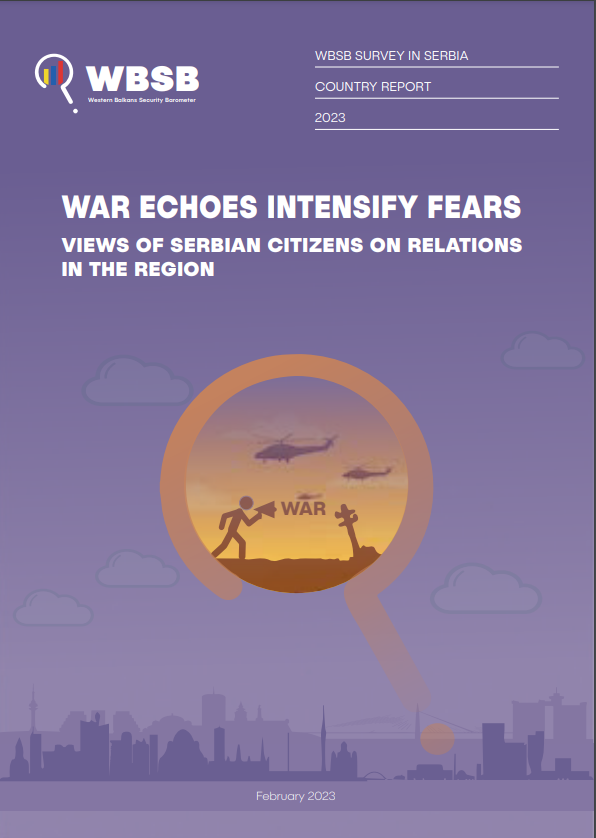28/02/2023

Belgrade Centre for Security Policy (BCSP)
National Endowment for Democracy (NED)
Gorana Pebić, Ivana Ranković and Luka Šterić
The Belgrade Centre for Security Policy conducted the annual public opinion survey on relations in the region, with a special focus on the Western Balkan countries and current events and trends. This report analyses Serbian citizens’ views on three main topics – the possibility of conflicts in the Balkans, Serbia’s bilateral relations with its neighbours, as well as key benefits and opportunities of regional cooperation and initiatives. Due to the current war in Ukraine and the war-mongering rhetoric in the Balkans, the fear of outbreak of conflict in the Balkans has risen. Compared to results from 2020, when more than half of citizens were not afraid of possible conflicts at all, the 2022 survey shows that almost two thirds of respondents are to a certain extent afraid of the outbreak of conflicts in the region in the next five years. Concerning potential causes of the conflict in the region, two-thirds of Serbian citizens believe that it is very or somewhat likely that a conflict might break out over the status of Kosovo. On the other hand, the results of the survey indicate a significant decrease in support of the reintroduction of mandatory military service, in comparison to results from 2020. When it comes to bilateral relations between Serbia and its neighbouring countries, the data shows a decline in support for potential separation of Republic of Srpska from Bosnia and Herzegovina and unification with Serbia. Citizens believe that relations between Serbia and Montenegro have not improved significantly, despite the signing of the Fundamental Agreement with the Serbian Orthodox Church. On the contrary, the negative perception of Serbian public towards Albania has slightly improved over the last two years, mainly due to the closer cooperation between the leaders of the two countries through the Open Balkan initiative. However, regional relations are still seen as strained, in part due to the promotion of the concept of Serbian world which creation is supported by slightly more than 40% of citizens. In 2022, the focus of the public in terms of regional cooperation was directed more directly to the Open Balkan initiative as a platform for collaboration between Albania, North Macedonia and Serbia. Although the data show an increase in the number of Serbian citizens who are familiar with the idea, there are still no concrete and publicly visible results of the initiative.
The data presented in the report derive from the Western Balkans Security Barometer (WBSB) survey. WBSB is a new regional initiative launched by KCSS in 2020, implemented in cooperation with the Belgrade Centre for Security Policy (BCSP) in Serbia and Center for the Study of Democracy and Governance (CSDG) in Albania, supported by the National Endowment for Democracy (NED). WBSB serves as an instrument to measure public perceptions in Albania, Kosovo and Serbia on different security-related issues. The findings demonstrate how citizens percept or are informed about the issues presented in this report. As such, the views presented in this report do not necessarily represent the views of the KCSS, BCSP, CSDG or NED